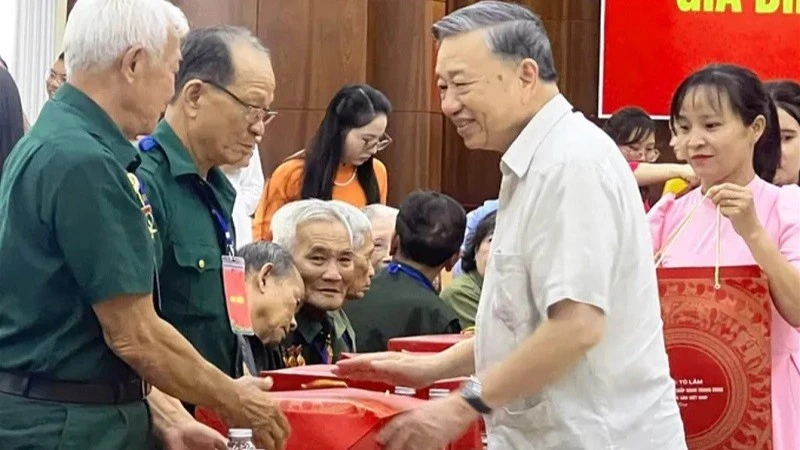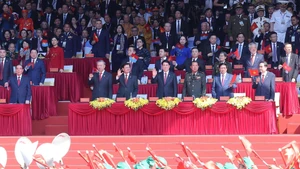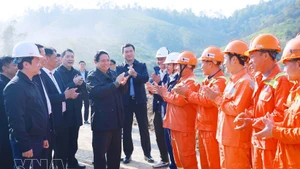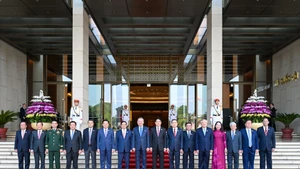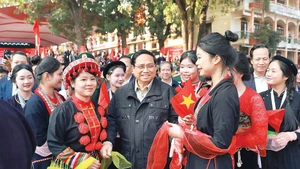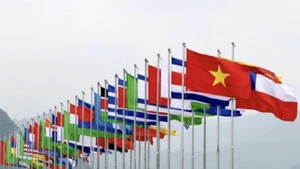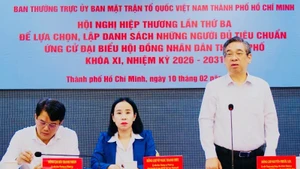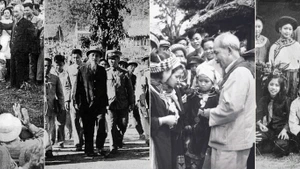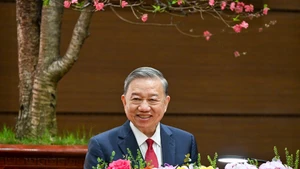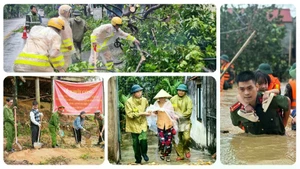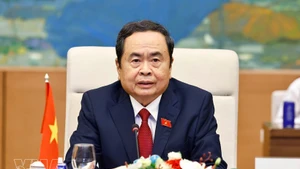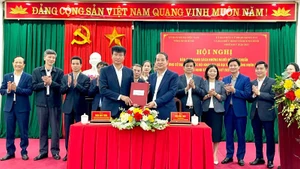International recognition through the ballot
In recent days, Viet Nam’s re-election to the UNHRC for the 2026–2028 term has drawn significant attention both domestically and internationally.
At the plenary session of the UN General Assembly on 14 October, 14 countries were elected to the council for the 2026–2028 term, including Viet Nam, India, Pakistan, Iraq, Egypt, South Africa, Mauritius, Angola, Estonia, Slovenia, Chile, Ecuador, Italy, and the United Kingdom. Viet Nam received 180 votes in favour — the highest number among the Asia-Pacific group — and was the only country in the region to be re-elected after serving on the Council for the 2023–2025 term.

This marks the third time Viet Nam has been elected to the UNHRC. The country first served during the 2014–2016 term, was re-elected for the 2023–2025 term, and will now continue for 2026–2028. The fact that representatives from 180 member states voted in favour of Viet Nam — just as the country is completing its current term — demonstrates the international community’s high regard for Viet Nam’s commitments, efforts, and achievements in promoting and protecting human rights, ensuring social welfare, and improving the material and spiritual well-being of its people. It also highlights recognition of Viet Nam’s active role and contributions to advancing global cooperation on human rights protection.
Moreover, the result of this election is a powerful rebuttal to the false narratives spread by hostile and reactionary forces that have persistently distorted the human rights situation in Vietnam. In fact, since late 2024, when Vietnam announced its intention to seek re-election for the 2026–2028 term, several overseas opposition organisations and hostile groups launched smear campaigns, publishing slanderous and misleading articles about Viet Nam’s human rights record. They also sought to pressure international bodies to obstruct Viet Nam’s candidacy.

Typical examples include articles published on RFA Vietnamese, VOA Vietnamese, BBC News Vietnamese, and the Facebook page of the terrorist organisation Viet Tan. These outlets have propagated distorted narratives about the human rights situation in Viet Nam, relying on misleading information provided by certain non-governmental organisations that are hostile toward Viet Nam as well as by exiled reactionary groups such as the global civil society alliance Civicus, the US Commission on International Religious Freedom (USCIRF), and the Viet Nam Human Rights Network (VHRN). Behind those writings lies an intention to undermine Viet Nam’s reputation.
However, the fact that 180 countries voted in favour of Viet Nam’s membership on the UNHRC for the 2026–2028 term has effectively refuted all such slanderous claims about the country’s human rights record. Indeed, only a nation that truly respects and ensures human rights can earn the necessary trust of the international community to be elected to the Human Rights Council — an organisation whose mission is to promote and protect human rights worldwide.
Tran Anh Tuan, Head of the Legal and Media Advisory Board at the Institute of Economics and International Law, observed: “The broad support of the international community expressed through the voting results, together with the effective participation and contributions of Viet Nam’s entire political system in line with the Politburo’s Resolution No. 59-NQ/TW, dated January 24, 2025, on international integration in the new context, constitute an important foundation for Vietnam to successfully fulfil its role as a member of the UNHRC for the 2026–2028 term.”
A Model in ensuring human rights
Human rights are a set of fundamental rights and freedoms that define an individual’s legal status. In the view of the Communist Party of Viet Nam, human rights are closely linked to the right of every person to comprehensive development — with the human being serving as both the centre and the driving force of development. Under this approach, and under the Party’s leadership, Viet Nam has become a “bright spot” and a model in ensuring human rights.
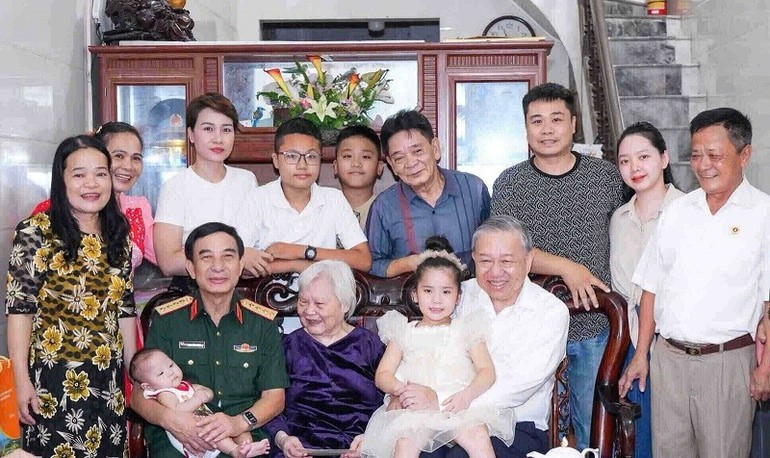
Respecting and ensuring human rights has been a consistent policy of the Party and State of Viet Nam. Human rights and citizens’ rights were first enshrined in the 1946 Constitution of the Democratic Republic of Viet Nam and have since been affirmed and expanded in the 1959, 1980, 1992, and 2013 constitutions. Article 3 of the 2013 Constitution of the Socialist Republic of Viet Nam states: “The State shall guarantee and promote the people’s mastery; recognise, respect, protect, and ensure human rights and citizens’ rights; realise the goals of a prosperous people, a strong nation, democracy, justice and civilisation; and ensure that everyone enjoys an affluent, free and happy life and has conditions for comprehensive development.”
To date, Viet Nam has ratified or acceded to 7 out of 9 core United Nations human rights conventions and 25 conventions of the International Labour Organisation (ILO). The principles enshrined in these conventions have been concretised in domestic legislation and effectively implemented in practice — clear evidence of the Party and State’s consistent policy of respecting and ensuring human rights.
Colonel, Associate Professor, Dr. Bui Quang Huy,
Head of the Department of State and Law
The Academy of Politics under the Ministry of National Defence
More importantly, Viet Nam’s commitment to ensuring human rights has been demonstrated through a wide range of Party and State policies that have been effectively implemented in practice in line with the international conventions to which Viet Nam is a signatory.
A typical example lies in Viet Nam’s progressive legal reforms regarding the death penalty. The 2015 Penal Code stipulates that the death penalty shall not apply to persons under 18 years old, pregnant women, women nursing children under 36 months, or persons aged 75 and above at the time of the offense. The Law on Amending and Supplementing the Penal Code 2015, which took effect on July 1, 2025, further abolishes the death penalty for eight offenses, including: activities aimed at overthrowing the people’s administration (Article 109); espionage (Article 110); sabotage of facilities and technical equipment of the Socialist Republic of Viet Nam (Article 114); manufacturing or trading counterfeit medicines (Article 194); illegal transportation of narcotics (Article 250); embezzlement (Article 353); bribery (Article 354); and acts of sabotage against peace or aggression (Article 421).
The abolition of the death penalty for these offenses is consistent with the United Nations International Covenant on Civil and Political Rights (ICCPR), to which Viet Nam acceded on September 24, 1982.
From a research perspective, Colonel, Associate Professor and Dr. Bui Quang Huy emphasised: “To date, Viet Nam has ratified or acceded to 7 out of 9 core UN human rights conventions and 25 ILO conventions. The contents of these conventions have been fully incorporated into domestic law and implemented in practice. This is solid proof of the Party and State’s policy of respecting and ensuring human rights.”
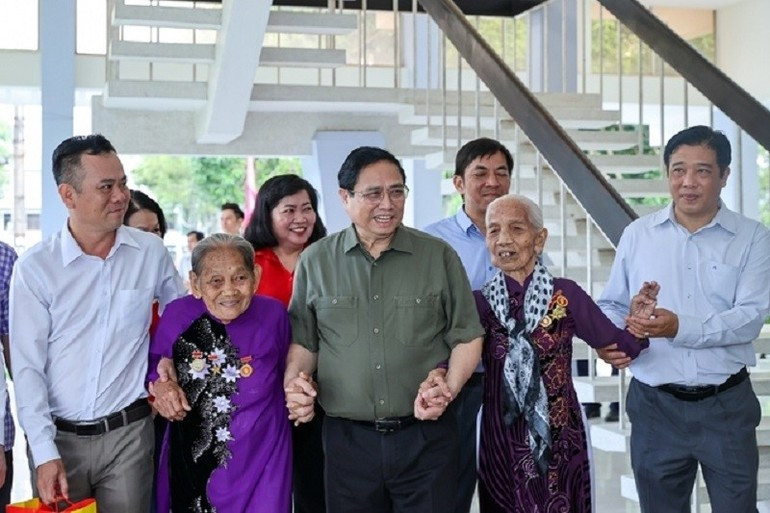
Within the framework of the law, Vietnamese citizens enjoy fundamental rights such as freedom of religion and belief, freedom of speech, freedom of the press, and access to information. As of 2024, Viet Nam had over 70 million internet users, accounting for about 70% of the population, with vibrant engagement on social media platforms such as Facebook, Zalo, and TikTok. Citizens are free to express opinions and access information widely and objectively. Freedom of religion and belief is also fully guaranteed, with dozens of religious organisations legally operating and more than 26 million followers, representing nearly 27% of the population.
In addition, the Party and State place strong emphasis on social welfare, including poverty reduction, healthcare, and free or subsidised education programmes.
According to the UNDP Human Development Report, Viet Nam’s Human Development Index (HDI) rose by eight places in 2024, from 115 to 107 out of 193 countries. The UN World Happiness Report 2024 ranked Vietnam 54th out of 143 countries, an increase of 11 places from 2023. Similarly, Viet Nam’s Sustainable Development Goals (SDG) Index ranking climbed to 54th out of 166 countries, up one place from 2023.
These achievements have been widely acknowledged by the international community, affirming Viet Nam’s progress in protecting and promoting human rights. Such undeniable results not only enhance Viet Nam’s role, position, and credibility on the global stage but also serve as powerful, evidence-based rebuttals to any distorted allegations about the human rights situation in the country.
